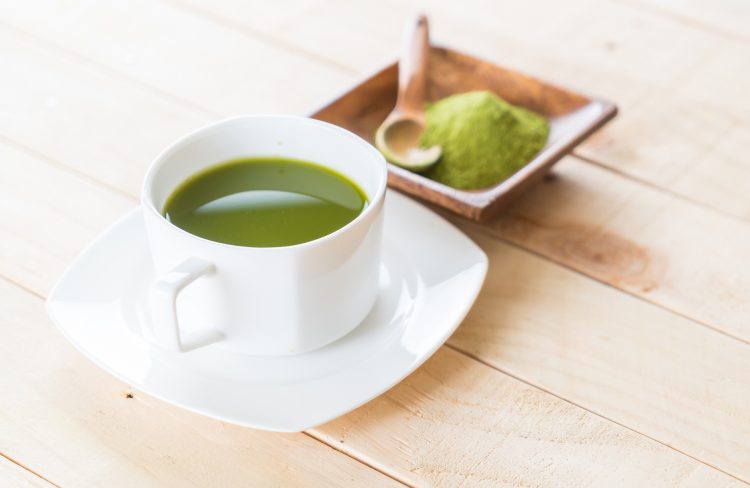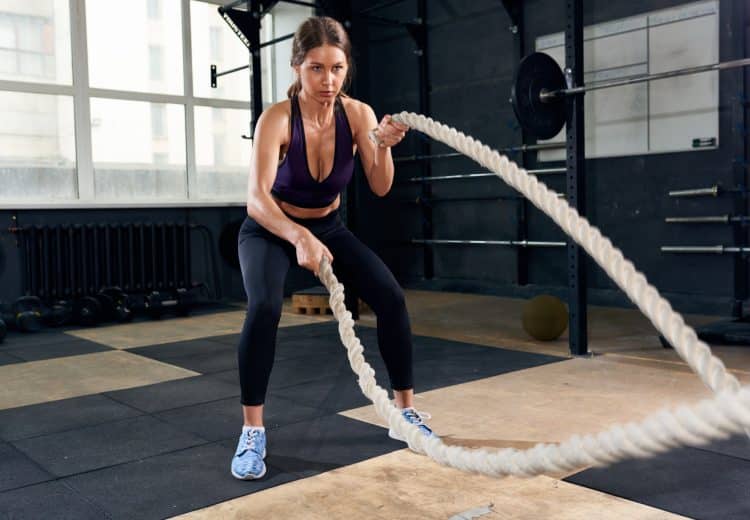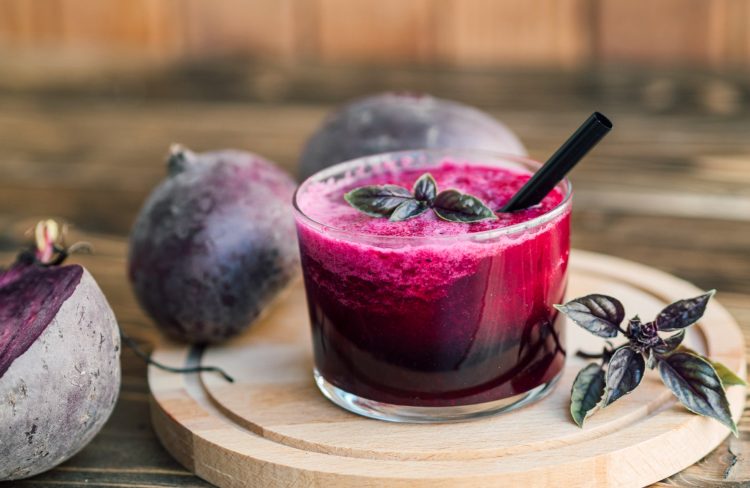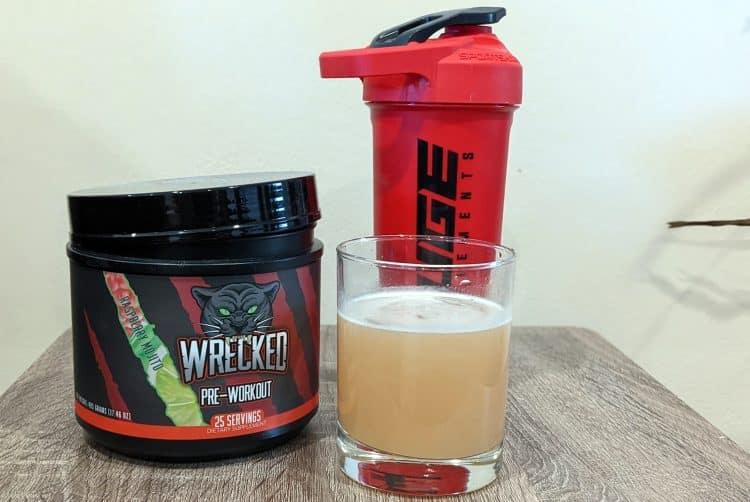Are you tired of paying mega bucks for pre-workouts that promise the world and deliver very little? Fortunately, you don’t have to spend a small fortune every month to give your body the energy boost needed for an awesome workout.
The combination of matcha and beetroot delivers the sustained energy, laser-sharp focus, and endurance you want but at a fraction of the cost of a store-bought pre-workout blend. It’s a win-win for your body and your wallet.
I’ve been a gym owner and personal trainer in the fitness industry for 35 years. Over that time, I’ve trialed virtually every pre-workout ingredient. Today, I use just two compounds to give me the energy boost I need to power through my workouts: matcha and beetroot.
In this article, I’ll explain why matcha and beetroot are two of the best ingredients for workout energy, why they’re a smarter choice than store-bought pre-workouts, and how you can make your own pre-workout with these two ingredients.
Why Matcha?
Matcha is a form of green tea that is ground into an extremely fine powder. The word matcha simply means ‘ground tea’ in Japanese.
Matcha tea comes from the Tencha plant. Its leaves are grown eight weeks longer than other teas, providing them with more chlorophyll and polyphenols. Matcha is also protected from sunlight for the last four weeks before being harvested. After being harvested, the leaves are steamed and separated from the bark and stalks. They are then ground into an extremely fine powder.
So, why should you drink matcha tea before your workout? Consider four reasons:
Combats Free Radical Damage
Matcha is extremely high in antioxidants. This makes it an excellent fighter against antioxidants and free radical damage. Matcha is especially high in catechins, a class of compounds that help to offset cell damage.
Intense gym training increases oxidative stress, which results in free radical damage to muscle cells. Matcha tea’s remarkably high levels of catechins and other free radical fighters make it an excellent pre-workout ingredient.
Increases Focus
Several studies have found that matcha has significant cognitive benefits. In a 2017 study, 23 people who took matcha tea before four test sessions had more significant improvements in attention, memory, and reaction time than the control group. (1)
Matcha is richer in caffeine than other types of tea, which tends to range between 11-25 milligrams per gram (mg/g). The concentration of caffeine in matcha ranges between 19-44 mg/g. So, an 8-ounce (240 ml) cup of matcha tea will contain about 80 grams of caffeine.
The caffeine in matcha stimulates the release of neurotransmitters like dopamine and norepinephrine, improving mood and cognitive function. L-theanine adds a calming effect, reducing anxiety and promoting a state of focused relaxation.
Matcha is a rich source of the amino acid L-theanine, which promotes focus and alertness as well as helps to avoid the energy crash that usually comes with caffeine consumption. (2)
Fights Fatigue
Do you start to feel exhausted halfway through your workout? This fatigue is partly due to increased adenosine, a hormone that signals the brain that it’s time to sleep. Caffeine has an adenosine receptor-blocking effect in the brain. As a result, you won’t feel as tired when you consume caffeine before a workout. Matcha’s relatively high concentration of caffeine makes it an effective workout fatigue fighter.
Boosts Energy
Unlike the rapid energy spike and crash often experienced with coffee or energy drinks, matcha provides a smoother, more sustained energy lift. The L-theanine in matcha slows the absorption of caffeine, leading to a more gradual release of energy over time. This results in increased endurance during workouts and improved mental stamina.
Matcha may slightly impact metabolism due to its catechin content. While the effect is modest, every bit of energy helps during a workout. A slightly faster metabolism means your body is better equipped to burn calories efficiently, potentially improving overall endurance.
Increases Strength and Muscle Mass
Matcha contains dietary fiber, amino acids, and antioxidants that may promote strength gains during resistance training.
In a 2023 study, untrained men were divided into a matcha or placebo group. The Matcha group was given 1.5 grams of matcha powder twice daily. Both groups undertook a resistance training program for eight and twelve weeks over two trial periods.
The matcha group significantly improved their leg strength after training in the first trial. In the second trial, the matcha group experienced a greater increase in muscle mass. (3)
What the Experts Say
Dr. Andrew Wiel is a world-renowned physician and a pioneer in integrative medicine. He is also an enthusiastic advocate of matcha tea. In a 2018 episode of The Joe Rogan Experience podcast, he said:
“It’s got L-theanine, which is this relaxant compound that modifies the effect of caffeine and produces a state of relaxed alertness so it doesn’t have the jangling effect of coffee, and you’re getting all of these antioxidant benefits that are well-documented. Anyway, I love it — it’s a great thing.”
YouTube fitness personality and unofficial King of Keto Thomas Delaur is another huge fan of matcha tea.
“Matcha is not just the frothy green drink you get at your popular coffee shop. It goes far beyond that. The health benefits are miles and miles long, ranging from antioxidants to a catecholamine bolstering effect, all the way down to that good old fashioned feel-good effect of Gamma-aminobutyric acid (GABA).” — Thomas Delaur
Why Beetroot?
Beetroot is commonly found in pre-workout formulas to promote muscle pump. Taking it by itself before your workout may provide the following benefits:
Increased Blood Flow
Beetroot is high in nitrates. These are converted into nitric oxide when consumed. Nitric oxide has a vasodilation effect on blood vessels, relaxing and widening them. As a result, blood flows more freely through the vessels.
Increased blood supply to your muscles means more oxygen and nutrients to power them during your workout. They’ll be stronger, have more endurance, and recover more efficiently after exercise, leading to improved performance and reduced fatigue.
Improved Recovery
The increased blood flow that beetroot promotes will flow into your post-workout period. This fast-tracks the delivery of nutrients and oxygen to your tired muscles, assisting in repair and recovery.
A 2021 meta-study, which evaluated nine previous studies, found that taking beetroot before a workout could reduce delayed onset muscle soreness and improve recovery. (4)
Antioxidant Support
Beetroot is rich in various antioxidants, including betaine and betalins. These fight against muscle damage caused by oxidative stress, promoting better workout recovery.
Are Matcha and Beetroot Better than Commercial Pre-Workouts?
Matcha and beetroot offer a compelling alternative to store-bought pre-workout supplements. Here are five reasons to experiment with this combination:
- Cost-Effectiveness: Most pre-workout supplements cost between $30 and $60 per month or $1-2 per serving. Contrast that with beetroot and matcha tea, bringing that cost down to around $0.50 to $0.75 per serving.
- No Unhealthy Ingredients: Pre-workouts often contain a long list of ingredients, some of which may be questionable or harmful. These include artificial colors, flavors, sweeteners (like sucralose), and preservatives. Matcha and beetroot are entirely natural and free of unhealthy compounds.
- Avoids Fillers and Unnecessary Compounds: Pre-workout supplements may contain fillers and proprietary blends that hide their ingredient dosages. These blends often include ingredients that might not directly benefit your workout but are included for marketing or cost-cutting reasons. With matcha and beetroot, you get pure, unadulterated ingredients with known benefits.
- Natural Energy and Nutrients: Matcha and beetroot offer a natural energy source without the crash associated with synthetic stimulants. Matcha’s combination of caffeine and L-theanine provides a smoother, more sustained energy boost than the rapid spike and crash caused by some pre-workout supps.
- Tailored to Your Needs: When you make your pre-workout blend with matcha and beetroot, you control the ratios and ingredients. You can adjust the amount of matcha for caffeine sensitivity, customize flavors with natural additives like honey or citrus, and even combine with other beneficial ingredients like collagen peptides or creatine, tailored to your fitness goals and preferences.
How to Take Matcha and Beetroot?
Traditional matcha tea is made by sifting 3-4 grams of the powder into a cup and then adding 60ml of boiling water. The mixture is then blended with a bamboo whisk.
The ratios are not set in stone and can be altered to suit your preferences.
In addition to the traditional preparation of matcha tea, the powder can be added to your favorite smoothie or pudding or even sprinkled over your oatmeal.
The simplest way to take beetroot pre-workout is to drink the juice. You can buy beetroot juice or make it yourself by juicing fresh beets.
Matcha and Beetroot Timing
Consume 8-16 ounces (250-500 ml) one to two hours before exercise. This provides sufficient time for the nitrates to convert into nitric oxide.
You can also purchase concentrated beetroot powder. This can be mixed with water, added to a smoothie, or sprinkled on oatmeal.
Another option is to buy beetroot capsules or tablets. This will provide you with a standardized dose that is quick and convenient to take.
FAQs
What makes matcha a good pre-workout option?
Matcha is rich in L-theanine, an amino acid that can promote focus and concentration. It also contains caffeine, providing a mild energy boost for workouts. Additionally, matcha is packed with antioxidants, which can help reduce exercise-induced oxidative stress.
How does tea compare to traditional pre-workout supplements?
Tea, especially green tea, can be a great alternative to traditional pre-workout supplements. Green tea contains caffeine for energy and may boost fat oxidation during exercise. It also provides polyphenols, which may improve endurance and reduce muscle damage.
Can beetroot juice improve exercise performance?
Yes, beetroot juice is rich in nitrates, which are converted to nitric oxide (NO) in the body. This compound enhances blood flow, bringing more oxygen to the muscles. This can enhance exercise performance, particularly in endurance activities like running or cycling. Consuming beetroot juice before a workout may help increase stamina and reduce fatigue.
Wrap Up
You don’t have to give a hefty chunk of your monthly income to a supplement company to get a good workout. The combination of matcha tea and beetroot will deliver the energy boost, vasodilation, and free radical-fighting effects to power you through your training while sparing you from unhealthy ingredients, fillers, and unwanted compounds.
Give the matcha tea and beetroot combination a six-week trial to determine its workout-boosting effects. Keep a journal to record your feelings during and after the workout and your focus, energy, and strength levels. If you’re getting good results, stick with it. If not, go back to your old pre-workout.
References
Fitness Volt is committed to providing our readers with science-based information. We use only credible and peer-reviewed sources to support the information we share in our articles.
- Dietz C, Dekker M, Piqueras-Fiszman B. An intervention study on the effect of matcha tea, in drink and snack bar formats, on mood and cognitive performance. Food Res Int. 2017 Sep;99(Pt 1):72-83. doi: 10.1016/j.foodres.2017.05.002. Epub 2017 May 5. PMID: 28784536.
- Kochman J, Jakubczyk K, Antoniewicz J, Mruk H, Janda K. Health Benefits and Chemical Composition of Matcha Green Tea: A Review. Molecules. 2020 Dec 27;26(1):85. doi: 10.3390/molecules26010085. PMID: 33375458; PMCID: PMC7796401.
- Shigeta M, Aoi W, Morita C, Soga K, Inoue R, Fukushima Y, Kobayashi Y, Kuwahata M. Matcha green tea beverage moderates fatigue and supports resistance training-induced adaptation. Nutr J. 2023 Jul 5;22(1):32. doi: 10.1186/s12937-023-00859-4. PMID: 37403052; PMCID: PMC10320999.
- Rojano-Ortega D, Peña Amaro J, Berral-Aguilar AJ, Berral-de la Rosa FJ. Effects of Beetroot Supplementation on Recovery After Exercise-Induced Muscle Damage: A Systematic Review. Sports Health. 2022 Jul-Aug;14(4):556-565. doi: 10.1177/19417381211036412. Epub 2021 Aug 16. PMID: 34399653; PMCID: PMC9214898.
منبع: https://fitnessvolt.com/matcha-and-beetroot/



